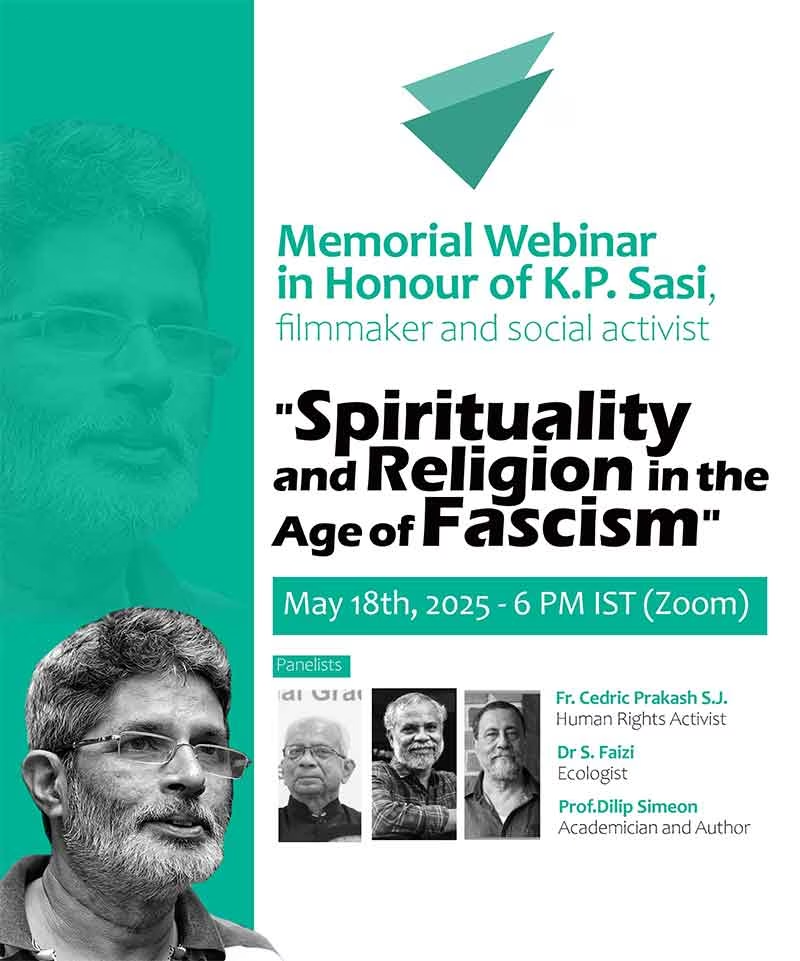This article is based on excerpts from a talk by Prof. Kancha Ilaiah Shepherd at the first KP Sasi Webinar on Politics of Language and Language of Politics held on 15 April 2025. In the video his speech is from 36.21 to 50.44 minutes.
At the outset, I pay tribute to KP Sasi. Though I did not know him nor ever met him, what I know is that he was a remarkable man who passed away quite early.
Now, when it comes to the topic—the politics of language and the language of politics—I have a major problem with the idea of “mother tongue” itself. You see, when I entered primary school from a completely illiterate family—with no literate relatives in between—we had no idea about our roots. My family could have had its origins in the Harappan civilization.
Around my village, there were more Lambada families whose household language was Gor Boli. But the schools taught only Telugu, and the Lambada children struggled immensely with Telugu, even though they were the majority in that village. This was in a single-teacher school in 1960.
Even my own family spoke a different caste language. So, the idea that the mother tongue for all Telugu regions is now defined as Telugu is false. The mother tongue—or rather, the family language—of the Lambada, Koya, Gondi, and other tribal communities remains their own languages, which are very different from Telugu. So, this entire concept of defining “mother tongue” is absurd.
The three-language formula has been imposed since 1947. Even Nehru’s government attempted it, and the biggest push came from Lal Bahadur Shastri—not just the current government.
Luckily, South Indian states were saved by the Periyar movement, which defined Tamil regions as having only two languages: historically evolved Tamil (which absorbed many other languages) and English. That saved them.
United Andhra Pradesh accepted three languages, Karnataka protested, and Kerala remained silent. In my school, I struggled to learn Telugu’s 56 letters, then English’s 26 letters, and finally Hindi. I found English easier than Telugu.
By sixth grade, I was forced to learn Hindi. Telugu’s script—possibly derived from Pali or Harappan languages—is entirely different from Hindi’s Sanskrit-based script. But Hindi was imposed with a mere 25 marks needed to pass, while other subjects required 35.
Today, children in Telugu states try to avoid Hindi even for those 25 marks. In my life, Hindi has been useless—unlike Telugu, which I use here, and English, which I use globally.
During Nehru’s time, despite Constituent Assembly debates (where Ambedkar suggested retaining English), the policy allowed English only in private schools for the elite, banning it in government schools.
For the first time, the Y.S. Rajasekhara Reddy government challenged this, citing a Supreme Court ruling from Karnataka (where the BJP tried to impose Kannada). The Court upheld parental choice in language medium. Andhra and Telangana now have English-medium government schools.
But here’s my question: Did Hindi states ever teach three languages like we in South India were forced to (except Tamil Nadu)? Why were we burdened with a useless third language while Hindi regions stuck to only two?
Now, the BJP pushes “one nation, one language,” yet their own elite send children to English-medium schools. If the BJP’s industrialist backers’ kids learn only English, why shouldn’t English be India’s single national language?
Our first-generation learners have no problem with English from LKG onward—no need for debates on “mother tongue” or “market tongue.” This is all nonsense. When I asked Karnataka Chief Minister Siddaramaiah why Karnataka doesn’t introduce English-medium schools, he said, “Kannada intellectuals oppose it.”
Even Kerala CM Pinarayi Vijayan hesitated, while only Tamil Nadu, thanks to Periyar, stood firm. The fear of Brahmin and Baniya intellectuals—who educate their own kids in English, CBSE, French, or German—keeps regional politicians from reforming.
What’s this talk of “language and culture”? Where is the link between Sanskrit, the Vedas, or Telugu texts and tilling land, making pots, forging tools, or growing food? Culture comes from labour—not language. This Brahminical myth must be rejected.
Our culture is in how we farm, what forests we nurture, what food we eat. What does Sanskrit have to do with it? This debate is rubbish.
English is now our mother language. We need just one language—English—and can learn Telugu regionally. Two are enough.
Subscribe to Our Newsletter
Get the latest CounterCurrents updates delivered straight to your inbox.
Prof. Kancha Ilaiah Shepherd is a prominent Indian social activist, political theorist, and scholar known for his influential writings on caste, social justice, and the rights of marginalized communities. A retired professor of Political Science at Osmania University, he has authored several groundbreaking books, including Why I Am Not a Hindu and Post-Hindu India, which challenge upper-caste hegemony and advocate for the empowerment of Dalits, Adivasis, and Other Backward Classes (OBCs).















































